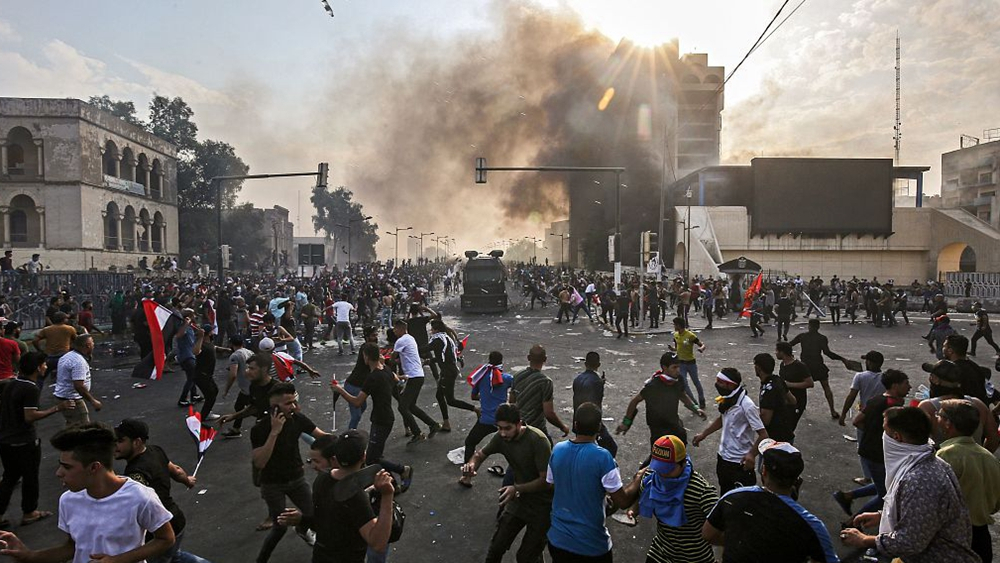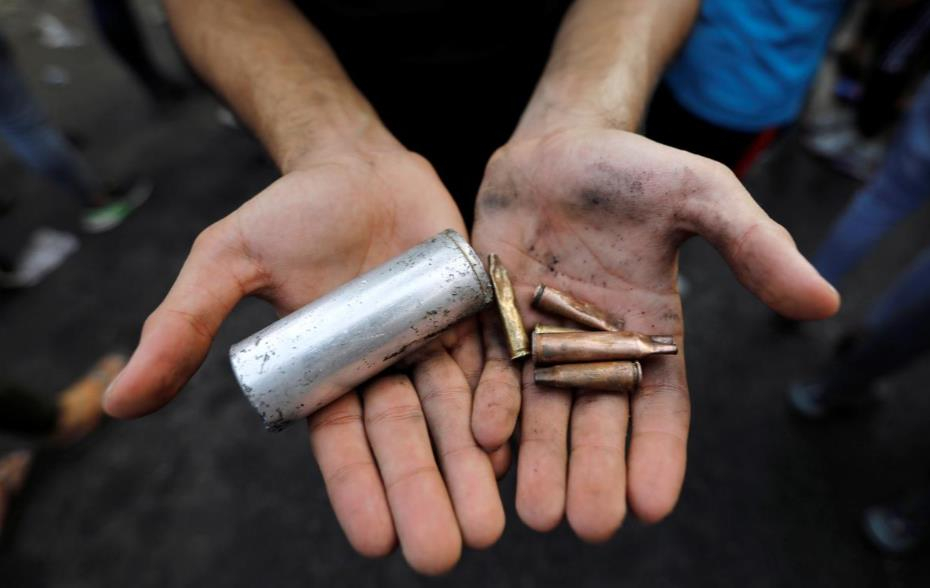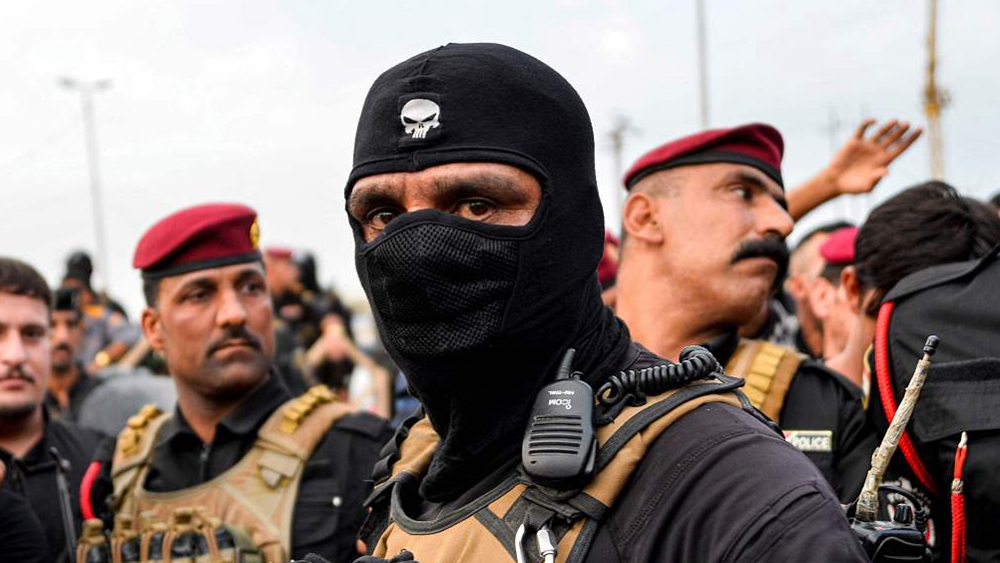
Protesters clash with a riot police vehicle during a demonstration against state corruption and poor services, between Tahrir Square and the high-security Green Zone district in Baghdad, Iraq, October 1, 2019. /VCG Photo
Protesters clash with a riot police vehicle during a demonstration against state corruption and poor services, between Tahrir Square and the high-security Green Zone district in Baghdad, Iraq, October 1, 2019. /VCG Photo
On Wednesday, Iraqi Prime Minister Adel Abdul Mahdi declared a curfew in Baghdad until further notice after at least seven people were killed and more than 400 were injured during two days of nationwide anti-government protests.
Earlier, curfews were imposed in three southern cities, Nasiriya, Amara and Hilla, as protests over unemployment, corruption and poor public services escalated.
"All vehicles and individuals are totally forbidden to move in Baghdad as of 5 a.m. today, Thursday, and until further notice," Abdul Mahdi said in a written statement.
Travelers to and from Baghdad airport, ambulances, government employees in hospitals, electricity, and water departments, and religious pilgrims are exempt from the curfew, the statement said. It was up to provincial governors to decide whether to declare curfews elsewhere.
Five people were killed on Wednesday and more than 200 were wounded in renewed clashes nationwide, the largest display of public anger against Abdul Mahdi's year-old government. Two were killed on Tuesday.

A demonstrator shows shell cases and empty tear gas canisters that were used by Iraqi security forces during a protest over unemployment, corruption and poor public services in Baghdad, Iraq, October 2, 2019. /VCG Photo
A demonstrator shows shell cases and empty tear gas canisters that were used by Iraqi security forces during a protest over unemployment, corruption and poor public services in Baghdad, Iraq, October 2, 2019. /VCG Photo
The five deaths on Wednesday included two protesters killed in Nassiriya. An Interior Ministry spokesman said a child was killed when a protester threw a gasoline-filled bottle at a vehicle carrying civilians in Baghdad, and a protester was killed in Amara. The fifth death was that of a protester who died from wounds sustained on Tuesday.
Police and the army opened fire and fired tear gas canisters to disperse hundreds of protesters in Baghdad. Protesters blocked the main highway connecting the capital to Iraq's northern provinces.
"Our demands? We want work, we want to work. If they do not want to treat us as Iraqis, then tell us we are not Iraqi and we will find other nationalities and migrate to other countries," said one protester in Baghdad.
Internet access was cut off across much of Iraq, internet blockage observatory NetBlocks said.

Iraqi security forces confront protesters during a demonstration against corruption and lack of basic services in Najaf, Iraq, October 1, 2019. /VCG Photo
Iraqi security forces confront protesters during a demonstration against corruption and lack of basic services in Najaf, Iraq, October 1, 2019. /VCG Photo
Abdul Mahdi on Wednesday chaired an emergency meeting of the national security council, which issued a statement regretting deaths and injuries on both sides.
"The council affirms the right to protest, freedom of expression, and the protesters' legitimate demands, but at the same time condemns the acts of vandalism that accompanied the protests," it said.
All military units were placed on high alert, the defense ministry said.
Security forces blocked several roads in Baghdad, including a bridge that leads to the fortified Green Zone, which houses government buildings and foreign embassies.
In an attempt to cool tempers, Abdul Mahdi on Tuesday promised jobs for graduates. He instructed the oil ministry and other government bodies to include a 50 percent quota for local workers in subsequent contracts with foreign companies.
Source(s): Reuters